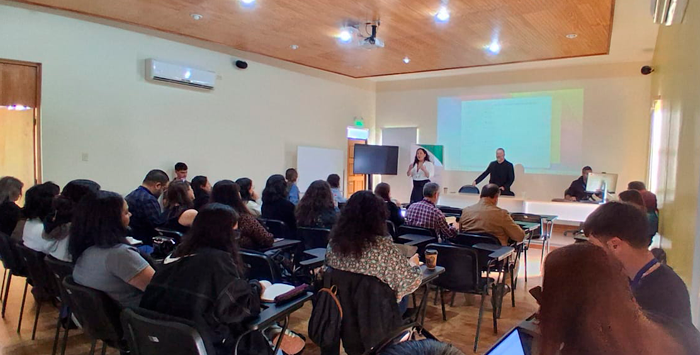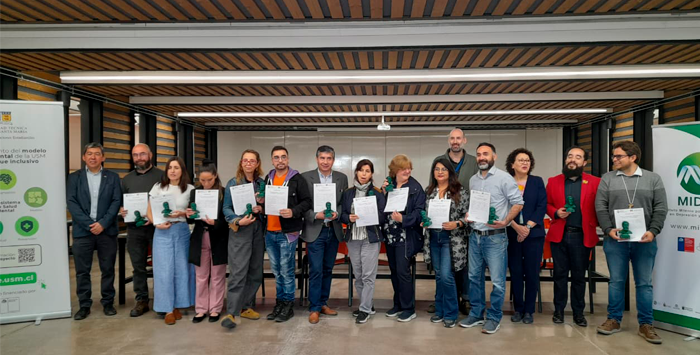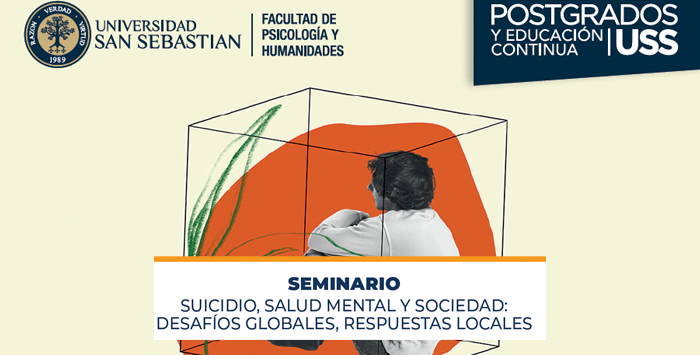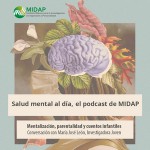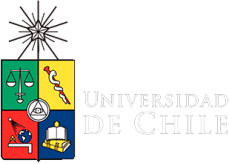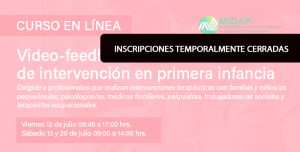
Course: “Video feedback as an intervention tool in early childhood,” July 2024
OVERVIEW Parenting-focused interventions have been classified as among the most effective in promoting well-being and preventing difficulties during childhood (Riera, 2016; Piquero et al., 2016). In this context, video feedback constitutes a privileged intervention tool (Facchini, Martin & Downing, 2016; Hoivik et al., 2015), with numerous investigations that show its effectiveness in the quality of interactions and bonds, as well as in variables associated with mental health and child development (Borelli et al, 2019, O´Hara, 2019, Fukkink, 2008; Olhaberry et al., 2019; Olhaberry et al., 2017; Olhaberry, León, Seguel, M. & Mena, 2015; Rusconi-Serpa, Sancho-Rossignol & McDonough, 2009; Yagmur, Mesman, Malda, Bakermans-Kranenburg & Ekmekci, 2014; Steele et al., 2014). Psychotherapy specialists highlight the importance of considering the mental aspects that underlie behavior, in order to understand the interactions between parents and children (Fonagy, Gergely & Jurist, 2018; Sharp & Fonagy, 2008), recognizing the caregiver's mentalization capacity as a key element to respond sensitively to children's needs and promote greater attachment security (Borelli et al, 2019; Zeegers, MAJ, Colonnesi, C., Stams, G.-JJM & Meins, E, 2017). Parental reflexive function or mentalization has been considered a key factor for affective and social development, for achieving self-regulation and intergenerational transmission of attachment (Fonagy, P., Steele, H. & Steele, 1991; Borelli et al 2018; Zeegers, MAJ, Colonnesi, C., Stams, G.-JJM & Meins, 2017). In this scenario, video feedback constitutes a privileged tool to promote parental reflexive functioning based on the observation of interactions in a protected and accompanied space. It facilitates the regulation of caregivers and the exploration of internal states in themselves and their children based on a careful approach to resources, which favors the understanding of difficulties. The video feedback course also seeks to enhance the therapist's reflective skills by identifying mental states and their triggers in themselves and in the dyads or triads requesting care (Bateman & Fonagy, 2016). In this way, the patient is in the therapist's mind, and the main concern is not the behavior itself, but rather the mental states that sustain it (Allen, Fonagy, & Bateman, 2008). In accordance with the above, the Millennium Institute for Research in Depression and Personality (MIDAP) offers the online course "Video feedback as an intervention tool in early childhood," seeking to provide fundamental content about this technique and its application. It considers its use in different relational contexts in which young children participate (mother/father-child dyads; family triads) and provides basic tools for use in both in-person and online psychotherapy. TARGETED AT: Professionals who provide therapeutic interventions with families and young children; Psychologists, family doctors, psychiatrists, social workers, and occupational therapists. GENERAL OBJECTIVE: To provide initial theoretical and practical content for the understanding and use of video feedback in working with young children and their families. SPECIFIC OBJECTIVES: METHODOLOGY: Organized by: With the support of: CONTENT AND SCHEDULE: TEACHING STAFF: Marcia Olhaberry Huber, Psychologist, PhD in Psychotherapy, Pontifical Catholic University of Chile and University of Heidelberg, Germany. Associate Professor, School of Psychology, Pontifical Catholic University of Chile. Deputy Director and Associate Researcher at the Millennium Institute for Research on Depression and Personality (MIDAP). Academic Coordinator and Supervisor of the Perinatal Mental Health Program, UC Christus Health Network. Academic Director of the Diploma in Psychopathology of the Bond, UC. Main lines of study: Prevention and intervention in early mental health, perinatal depression, parenting, mentalization, dyadic and triadic family interactions and bonds. Catalina Sieverson Raddatz, Psychologist, PhD in Psychotherapy from the University of Chile-Pontifical Catholic University of Chile Joint Program and postdoctoral researcher at the Millennium Institute for Research on Depression and Personality (MIDAP). Therapist at the Perinatal Mental Health Program, UC Christus Health Network, and the High-Risk Pregnancy Support Program at the Universidad de Los Andes Clinic and Dávila Clinic. Main lines of study: mentalization in perinatal and early mental health interventions and prevention in early childhood mental health. María José León Papic, Psychologist, PhD in Psychotherapy from the University of Chile-Pontifical Catholic University of Chile Joint Program. Psychologist and Master in Clinical Psychology at the Adolfo Ibáñez University. Principal researcher for Fondecyt Postdoctoral Research. Young Investigator at the Millennium Institute for Research in Depression and Personality (MIDAP). University professor. Main lines of study: early bonding, mentalization and child socio-emotional development. BASIC BIBLIOGRAPHY: Doria, M., Kennedy, H., Strathie, C. & Strathie, S. (2014). Explanations for the Success of Video Interaction Guidance (VIG): An Emerging Method in Family Psychotherapy. The Family Journal: Counseling and Therapy for Couples and Families, 22, 78-87. doi: 10.1177/1066480713505072 Facchini, S., Martin, V. & Downing, G. (2016) Pediatricians, Well-Baby Visits, and Video Intervention Therapy: Feasibility of a Video-Feedback Infant Mental Health Support Intervention in a Pediatric Primary Health Care Setting. Frontiers in Psychology, (7), 179. doi: 10.3389/fpsyg.2016.00179 Fukkink, R. (2008). Video feedback in widescreen: a meta-analysis of family programs. Clinical Psychology Review, 28, 904–16. doi:10.1016/j.cpr.2008.01.003 Groeneveld, M., Vermeer, H., van Ijzendoorn, M. & Linting, M. (2016). Randomized video-feedback intervention in home-based childcare: Improvement of children's well-being dependent on time spent with trusted caregiver. Child Youth Care Forum, 45, 587-606. doi: 10.1007/s10566-015-9344-8 Hoivik, M.S., Lydersen, S., Drugli, M.B., Onsoien, R., Hansen, M.B., and Nielsen, T.S. (2015). Video feedback compared to treatment as usual in families with parent-child interaction problems: a randomized controlled trial. Child and Adolescent Psychiatry Mental Health, 9(3). https://doi.org/10.1186/s13034-015- 0036-9 Olhaberry, M, Leyton, F., Morán-Kneer, J., León, MJ, Sieverson, C., Muzard, A., Honorato, C., Ensink, K., Malberg, N., Luyten, P. & Costa-Cordella, S. (2022). Internet mentalization informed video intervention strengths based to improve maternal sensitivity in mother-infant dysads with maternal depressive symptoms: Study protocol for a randomized controlled feasibility trial. Medwave https://doi.org/10.5867/medwave.2022.11.2570 Olhaberry, M., León, MJ and Sieverson, C. (2020) Clinical guide for the use of video-feedback. Unpublished broadcast material

